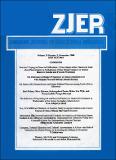| dc.contributor.author | Chivandikwa, Nehemiah | |
| dc.contributor.author | Makumbirofa, Ruth | |
| dc.coverage.spatial | Zimbabwe. | en |
| dc.date.accessioned | 2015-08-26T13:08:21Z | |
| dc.date.available | 2015-08-26T13:08:21Z | |
| dc.date.issued | 2008-11 | |
| dc.identifier.citation | Chivandikwa, N. and Makumbirofa, R. (2008) Theatre, Life Skills and Participatory Learning. The Zimbabwe Journal of Educational Research (ZJER), vol. 20, no.3, (pp.389-406). UZ, Mt. Pleasant, Harare: HRRC. | en |
| dc.identifier.issn | 1013-3445 | |
| dc.identifier.uri | https://opendocs.ids.ac.uk/opendocs/handle/20.500.12413/6850 | |
| dc.description | A ZJER article on education through theater and other participatory methods for the student in rural Zimbabwe. | en |
| dc.description.abstract | This article describes and evaluates the educational work being undertaken by Students Partnership Worldwide (SPW) which is an international organisation specialising in life skills education to school children in rural areas. The article examines theatre-related programmes in which the organisation makes use of theatre as an instrument to teach life skills. Special emphasis is focused on “Albatross”, a play which was performed in 2003.
The arguments presented in this article are based on theories of learning which recognise the resources of the learner and that these should be fully utilised so that the learner is an active meaning-maker in the learning experience. Related theories which are explored in this paper include Paulo Freire s Pedagogy of the Oppressed, Augusto Boa! s Theatre of the Oppressed and Bertolt Brecht s Epic Theatre. The advantage of theatre is that it "an Emulate both cognitive and aesthetic forms of learning which are both social and sociable. In view of this realisation, the authors acknowledge the educational benefits which were realised in the “Albatross”play. However, the article proffers recommendations on how the programme could be strengthened organisationally, artistically, methodologically and theoretically. These recommendations are based on the assumption that this programme could be used as one of the strategies to foster the growth and development of a critical pedagogy which seems to be lacking in the conventional curriculum. Perhaps the idea of using theatre as a tool for instruction, transmission of knowledge and above ail as an instrument for stimulating creative and critical learning has not yet received the kind of attention that it deserves. | en |
| dc.language.iso | en | en |
| dc.publisher | Human Resource Research Centre (HRRC) , University of Zimbabwe (UZ.) | en |
| dc.rights.uri | http://creativecommons.org/licenses/by-nc-nd/3.0/ | en |
| dc.subject | Education | en |
| dc.subject | Participation | en |
| dc.title | Theatre, Life Skills and Participatory Learning | en |
| dc.type | Article | en |
| dc.rights.holder | University of Zimbabwe (UZ) | en |


